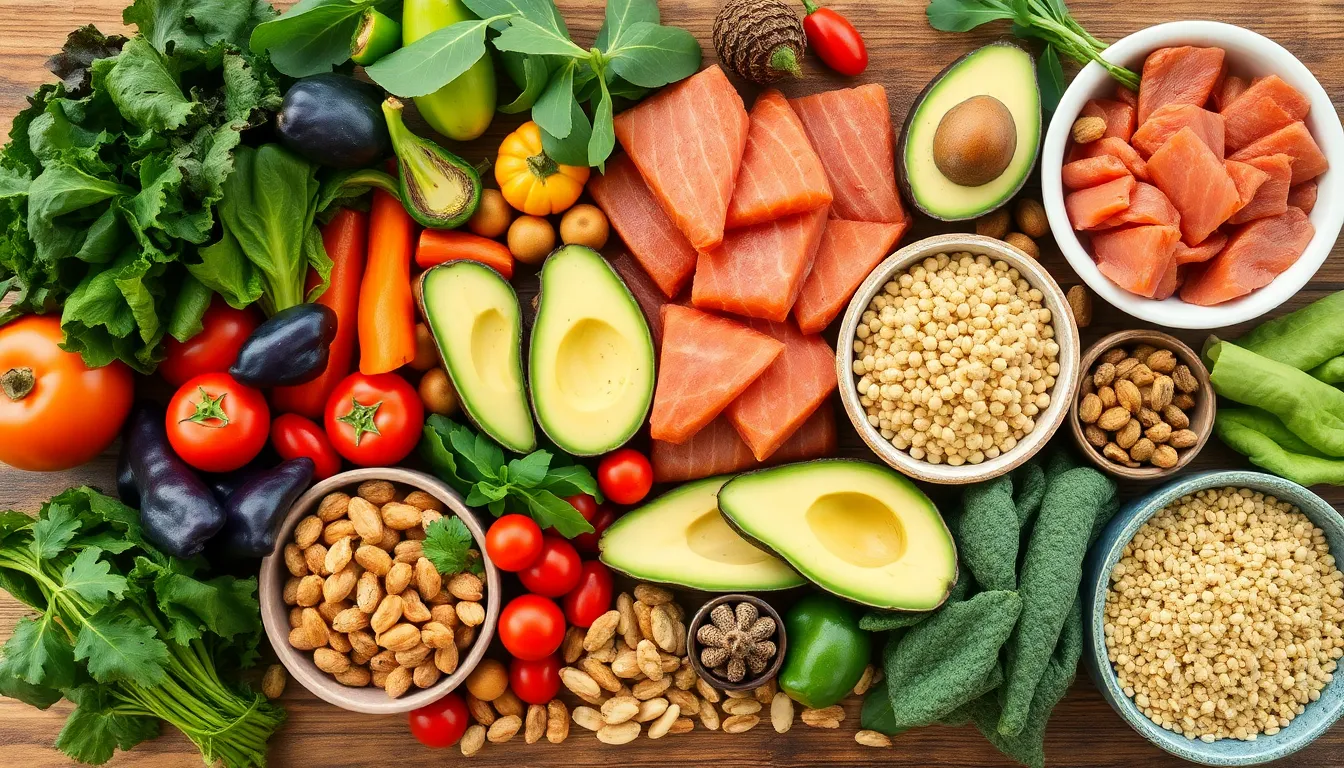Navigating the world of food can feel like a labyrinth for those with dhozotic disease. It’s not just about avoiding the usual suspects; it’s about embracing a diet that keeps the body happy and thriving. Imagine a plate filled with vibrant veggies and lean proteins, all while waving goodbye to the culprits that cause discomfort.
Table of Contents
ToggleUnderstanding Dhozotic Disease
Dhozotic disease refers to a group of genetic disorders affecting metabolic functions. Individuals diagnosed with this condition often face unique dietary challenges. These challenges stem from the body’s inability to process certain substances effectively. Nutritional management becomes essential for promoting health and preventing complications.
Diet plays a crucial role in managing dhozotic disease. It’s vital to incorporate a variety of colorful vegetables, which provide essential nutrients. Leafy greens, bell peppers, and carrots support overall health and vitality. Lean proteins, such as chicken, fish, and legumes, should form the foundation of a balanced diet.
Avoiding specific foods significantly impacts symptom management. High-fat foods, processed sugars, and excessive carbohydrates often exacerbate symptoms. Prioritizing whole foods over processed options ensures better metabolic function. Incorporating healthy fats, like avocados and nuts, can also contribute positively to their diet.
Hydration remains vital for individuals with dhozotic disease. Drinking sufficient water aids in nutrient absorption and overall metabolic processes. Staying hydrated supports organ function and can mitigate some symptoms associated with the disease.
Regular consultation with a healthcare provider or nutritionist ensures dietary recommendations align with individual health needs. Tailored diets based on professional advice promote better health outcomes. Emphasizing the importance of nutrition allows individuals with dhozotic disease to manage their condition effectively while improving their quality of life.
Nutritional Needs for Dhozotic Disease

Dietary management plays a crucial role in supporting individuals with dhozotic disease. Nutritional strategies focus on promoting health and preventing complications.
Essential Nutrients
Individuals with dhozotic disease require specific nutrients to maintain optimal health. carbohydrates, proteins, and fats must be balanced in the diet. Vitamins A, C, and E support immune function and promote skin health. B vitamins contribute to energy metabolism, while minerals like calcium and magnesium strengthen bones and muscles. Antioxidants play a vital role in reducing oxidative stress, which can be beneficial for overall well-being. Healthcare providers often recommend supplements to meet these nutrient needs, enhancing dietary effectiveness.
Foods to Include
Incorporating a variety of nutrient-dense foods is essential. Dark leafy greens such as kale and spinach provide important vitamins and minerals. Colorful vegetables like bell peppers and sweet potatoes offer antioxidants that support metabolic function. Lean proteins from sources like chicken, turkey, and legumes supply necessary amino acids. Healthy fats found in avocados and nuts contribute to overall wellness. Whole grains like quinoa and brown rice support energy levels and digestive health. Consistent hydration through water and herbal teas aids in nutrient absorption and promotes organ function.
Foods to Avoid
Avoiding certain foods is critical for individuals with dhozotic disease. Proper dietary management helps prevent symptoms and complications associated with this condition.
Common Triggers
High-fat foods often trigger adverse reactions. Meats with high saturated fat content can lead to metabolic distress. Processed snacks and fast food should also be limited due to their unhealthy fats and additives. High-sugar items, such as candies and sugary beverages, exacerbate existing issues by causing spikes in blood sugar levels. Refined carbohydrates also pose risks, as they can hinder effective metabolic processes. Jointly, these categories of food can provoke inflammation and discomfort, making them undesirable choices.
Allergens and Sensitivities
Individuals with dhozotic disease may experience sensitivities to specific allergens. Common allergens include dairy products, which can destabilize digestional processes in some people. Gluten present in many grains may also lead to similar issues, particularly for those with gluten intolerance. Legumes like peanuts can trigger immune responses and cause distress. Tree nuts often pose risks too, with reactions varying from mild sensitivities to severe allergies. Prioritizing allergen-free whole foods may enhance health and overall quality of life for those affected by dhozotic disease.
Meal Planning Tips
Meal planning proves essential for individuals with dhozotic disease. Prioritizing nutrient-dense foods enhances overall health. Incorporate a variety of colorful vegetables, lean proteins, and healthy fats into daily meals. Leafy greens, bell peppers, and carrots provide vital nutrients while supporting metabolic function.
Focus on portion control and balance when combining carbohydrates, proteins, and fats. Lean proteins such as chicken, fish, and legumes help maintain energy levels. Whole grains offer sustained energy without excessive spikes in blood sugar, which can complicate metabolic management.
Establishing a consistent eating schedule aids in maintaining energy levels throughout the day. Hydration is equally crucial, so individuals should drink adequate water and herbal teas. These beverages assist in nutrient absorption and promote organ function.
While selecting foods, prioritize allergen-free whole foods to avoid common triggers. Recognize high-fat and processed foods that can exacerbate symptoms. Recognizing common allergens is important; avoiding dairy, gluten, peanuts, and tree nuts can stabilize digestive processes.
Creating a food diary helps track dietary intake and identify any potential adverse reactions. Adjustments to the meal plan can occur as nutritional needs evolve or symptoms arise. Collaborating with healthcare providers ensures the dietary approach aligns with individual health requirements for optimal management of dhozotic disease.
Managing a diet for dhozotic disease involves careful consideration of food choices and nutritional balance. Emphasizing whole foods rich in essential vitamins and minerals can significantly enhance health and well-being. By focusing on colorful vegetables and lean proteins while avoiding high-fat and processed foods, individuals can better manage their symptoms.
Hydration and meal planning play vital roles in maintaining energy levels and optimizing nutrient absorption. Regular consultations with healthcare professionals ensure that dietary needs are met, allowing individuals to navigate their unique challenges effectively. With the right approach to nutrition, those with dhozotic disease can improve their quality of life and promote better health outcomes.



